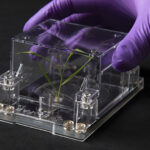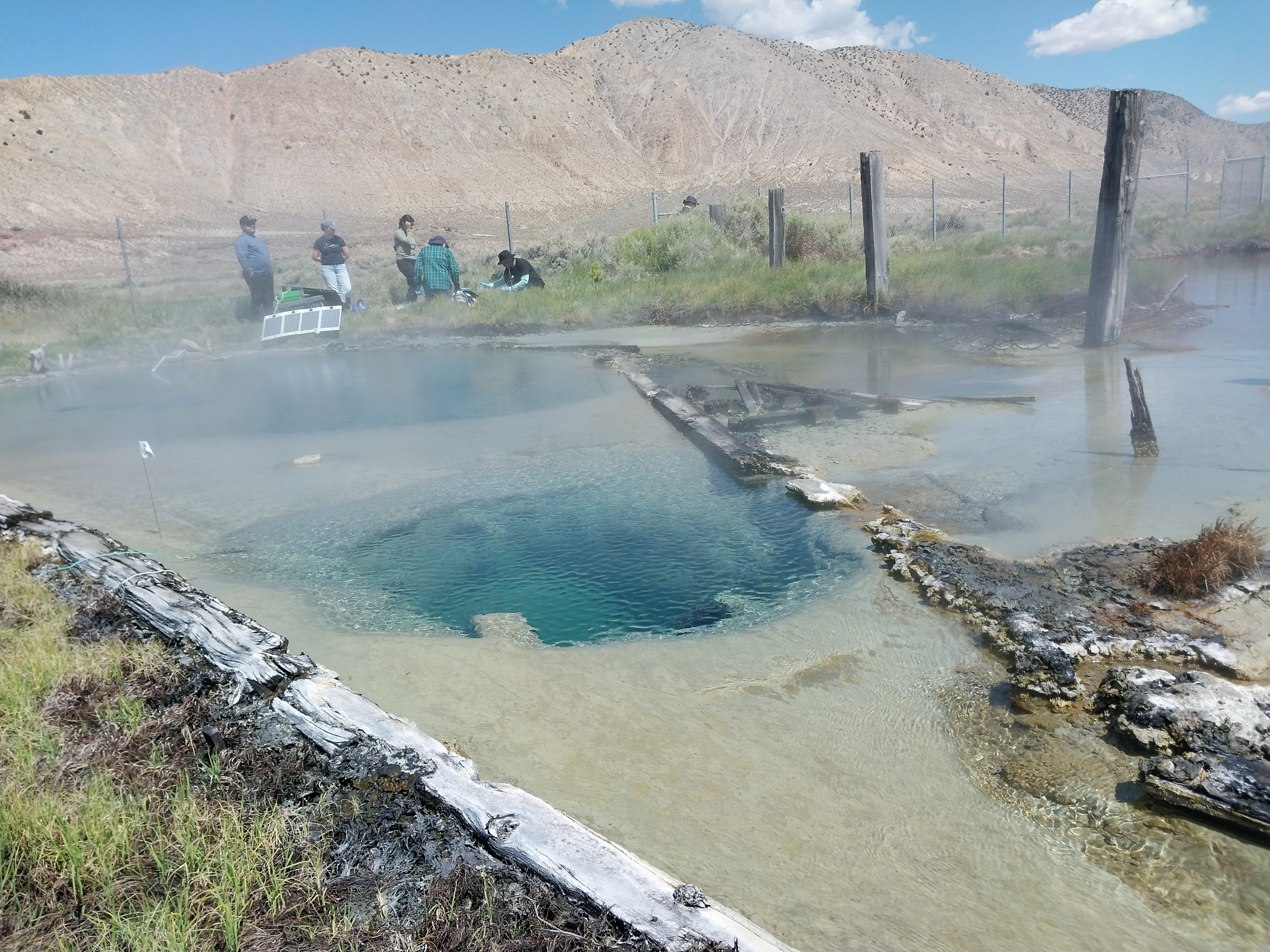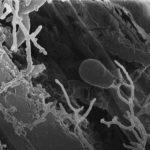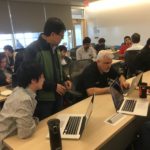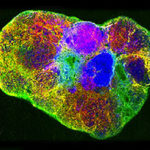Fabricated ecosystems—EcoFABs—are plastic, takeout box–sized growth chambers developed at Berkeley Lab to be a standardized and reproducible platform for conducting experiments on model plants and the microbes that live around their roots. A greater understanding of how plants and microbes work together to store vast amounts of atmospheric carbon in the soil will help in the design of better bioenergy crops for the fight against climate change.
JGI-Enabled Research Finds Flagella in the Terrestrial Roots of Marine Bacteria
Scientists have discovered flagella in an unexpected place: hot spring-dwelling bacteria from the phylum Chloroflexota. Research shows that flagella were lost in other forms of Chloroflexota that adapted to marine environments hundreds of millions of years ago.
JGI Helps Uncover Novel Chemicals from an Unexpected Source: Gut Fungi
Anaerobic fungi, which die in the presence of oxygen, thrive in herbivore guts and help them digest their host’s last leafy meal. In their evolutionary history, these fungi branched off early from aerobic fungi, which can breathe oxygen — just like we do. Oxygen is a rich source of energy, and because anaerobic fungi can’t harness it, scientists long held that these fungi don’t have the energy to make complex compounds called natural products. Yet, analyzing the genomes and genome products of four anaerobic fungal species has revealed that this group is unexpectedly powerful: they can whip up dozens of complex natural products, including new ones. The work was partly enabled by the “Facilities Integrating Collaborations for User Science” (FICUS) collaborative science initiative between the JGI and the Environmental Molecular Sciences Laboratory. Read the full science highlight on the JGI website.
Computing Sciences and Biosciences Hold Machine Learning Workshop
The Lab’s Computing Sciences and Biosciences Areas jointly held a week-long workshop focused on machine learning in data science, the goal of which was to build bridges through a common foundation in statistical computing. Thirty attendees from Biosciences, Computing Sciences, and Lab IT received hands-on training provided by Data Incubator before engaging in a “hackathon” to apply the techniques to relevant science problems and data sets.
Berkeley Lab’s OpenMSI Licensed to ImaBiotech
Two years ago, Lawrence Berkeley National Laboratory (Berkeley Lab) researchers developed OpenMSI—the most advanced computational tool for analyzing and visualizing mass spectrometry imaging (MSI) data. Last year, this web-available tool was selected as one of the 100 most technologically significant new products of the year by R&D Magazine. Now, OpenMSI has been licensed to bolster ImaBiotech’s Multimaging™ technology in the field of pharmaceutical and cosmetic research and development. With support from the National Energy Research Scientific Computing Center (NERSC), Ben Bowen of the Environmental Genomics and Systems Biology Division and Oliver Rübel of the Computational Research Division conceptualized and developed OpenMSI.
Was this page useful?


